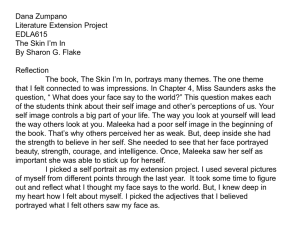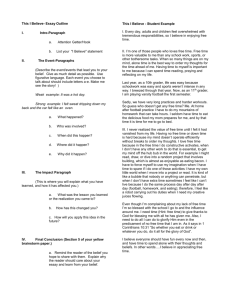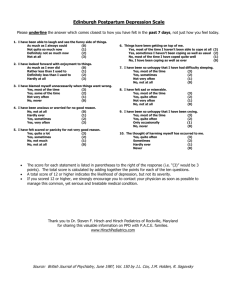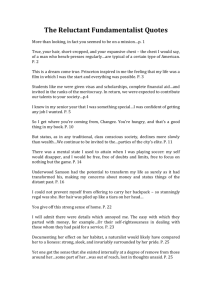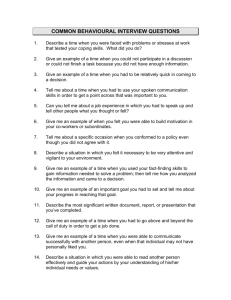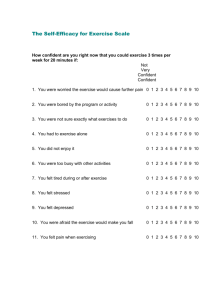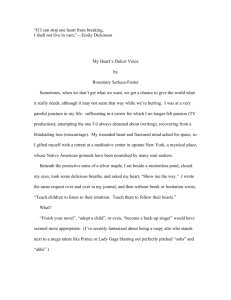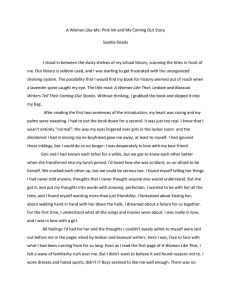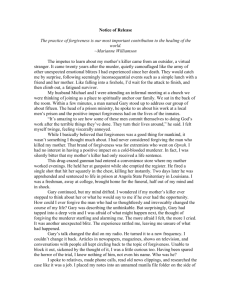Night Quotations pages 3-12
advertisement
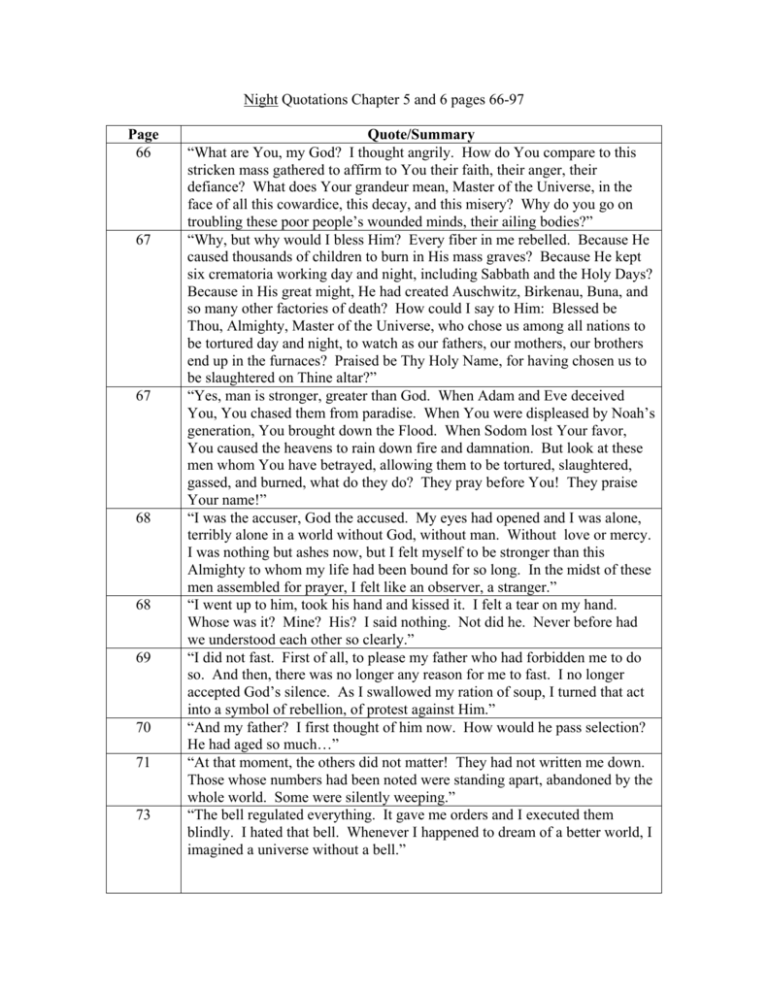
Night Quotations Chapter 5 and 6 pages 66-97 Page 66 67 67 68 68 69 70 71 73 Quote/Summary “What are You, my God? I thought angrily. How do You compare to this stricken mass gathered to affirm to You their faith, their anger, their defiance? What does Your grandeur mean, Master of the Universe, in the face of all this cowardice, this decay, and this misery? Why do you go on troubling these poor people’s wounded minds, their ailing bodies?” “Why, but why would I bless Him? Every fiber in me rebelled. Because He caused thousands of children to burn in His mass graves? Because He kept six crematoria working day and night, including Sabbath and the Holy Days? Because in His great might, He had created Auschwitz, Birkenau, Buna, and so many other factories of death? How could I say to Him: Blessed be Thou, Almighty, Master of the Universe, who chose us among all nations to be tortured day and night, to watch as our fathers, our mothers, our brothers end up in the furnaces? Praised be Thy Holy Name, for having chosen us to be slaughtered on Thine altar?” “Yes, man is stronger, greater than God. When Adam and Eve deceived You, You chased them from paradise. When You were displeased by Noah’s generation, You brought down the Flood. When Sodom lost Your favor, You caused the heavens to rain down fire and damnation. But look at these men whom You have betrayed, allowing them to be tortured, slaughtered, gassed, and burned, what do they do? They pray before You! They praise Your name!” “I was the accuser, God the accused. My eyes had opened and I was alone, terribly alone in a world without God, without man. Without love or mercy. I was nothing but ashes now, but I felt myself to be stronger than this Almighty to whom my life had been bound for so long. In the midst of these men assembled for prayer, I felt like an observer, a stranger.” “I went up to him, took his hand and kissed it. I felt a tear on my hand. Whose was it? Mine? His? I said nothing. Not did he. Never before had we understood each other so clearly.” “I did not fast. First of all, to please my father who had forbidden me to do so. And then, there was no longer any reason for me to fast. I no longer accepted God’s silence. As I swallowed my ration of soup, I turned that act into a symbol of rebellion, of protest against Him.” “And my father? I first thought of him now. How would he pass selection? He had aged so much…” “At that moment, the others did not matter! They had not written me down. Those whose numbers had been noted were standing apart, abandoned by the whole world. Some were silently weeping.” “The bell regulated everything. It gave me orders and I executed them blindly. I hated that bell. Whenever I happened to dream of a better world, I imagined a universe without a bell.” 75 75 75 76 77 80 82 83 85 86 87 88 89 91 “‘Here, take this knife,’ he said. ‘I won’t need it anymore. You may find it useful. Also take this spoon. Don’t sell it. Quickly! Go ahead, take what I’m giving you!’ My inheritance… ‘Don’t talk like that, Father.’” “He looked at me with his tired eyes, veiled by despair. He insisted: ‘I am asking you…Take it, do as I ask you, my son. Time is running out. Do as your father asks you…’” “I felt sick at heart. How kindly they treated me. Like an orphan. I thought: Even now, my father is helping me.” “He was alive. He had passed the second selection. He had still proved his usefulness…I gave him back his knife and spoon.” “There followed terrible days. We received more blows than food. The work was crushing. And three days after he left, we forgot to say Kaddish.”(referring to Akiba Drummer) “His cold eyes stared at me. At last, he said wearily: ‘I have more faith in Hitler than in anyone else. He alone has kept his promises, all his promises, to the Jewish people.’” (spoken by the man in the hospital) “As for me, I was thinking not about death but about not wanting to be separated from my father. We had already suffered so much, endured so much together. This was not the moment to separate.” “Once more, the last night. The last night at home, the last night in the ghetto, the last night in the cattle car, and, now, the last night in Buna. How much longer would our lives be lived from one ‘last night’ to the next?” “Though I tried to put it out of my mind, I couldn’t help thinking that there were two of us: my body and I. And I hated that body.” “The idea of dying, of ceasing to be, began to fascinated me. To no longer exist. To no longer feel the excruciating pain of my foot. To no longer feel anything, neither fatigue nor cold, nothing. To break rank, to let myself slide to the side of the road… My father’s presence was the only thing that stopped me. He was running next to me, out of breath, out of strength, desperate. I had no right to let myself die. What would he do without me? I was his sole support.” “Long since, we had exceeded the limits of fatigue. Our legs moved mechanically, in spite of us, without us.” “As one man, we let ourselves sink into the snow.” “But deep inside, I knew that to sleep meant to die. And something in me rebelled against that death. Death, which was settling in all around me, silently, gently. It would seize upon a sleeping person, steal into him and devour him bit by bit.” “What if he had wanted to be rid of his father? He had felt his father growing weaker and, believing that the end was near, had thought by this separation to free himself of a burden that could diminish his own chance for survival.” 91 92 “And in spite of myself, a prayer formed inside me, a prayer to this God in whom I no longer believed. ‘Oh God, Master of the Universe, give me the strength never to do what Rabbi Eliahu’s son has done.” “These words of encouragement, even coming as they did from the mouths of our assassins, were of great help.”

